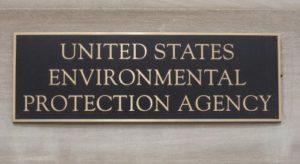Ten U.S. senators (nine Democrats and Bernie Sanders, an Independent) have asked the Government Accountability Office (GAO) to investigate EPA Administrator Scott Pruitt’s new policy for appointing members to the Agency’s scientific federal advisory committees (FACs). The request follows Pruitt’s issuance of principles and procedures for filling committee FAC vacancies. The major new provision prohibits any scientist who received an EPA grant from FAC service. Pruitt’s directive also states that openings in the committees will be filled with individuals representing more geographic diversity.

The senators are basically asking the GAO to investigate whether there is any validity to Pruitt’s contention that eliminating scientists with EPA grants will also eliminate conflicts of interests and foster independent scientific advice to the Agency.
The GAO previously agreed to a request by Democratic lawmakers to investigate the independence of EPA’s scientific FACs. The senators’ letter asks that the GAO include in that investigation an assessment of Pruitt banning from FAC membership any recipient of an EPA grant. The ban includes principal investigator or coinvestigator and anyone in a position that otherwise would reap substantial direct benefit from an EPA grant.
Grants compromise independence
“EPA’s new policy appears to rest on the premise that scientists ‘reap substantial direct benefit’ from EPA grants and therefore cannot be ‘motivated by service and commitment to providing informed and independent expertise and judgment’ when serving on FACs,” write the senators.
The letter notes unofficial sources who report that Pruitt intends to fill vacated seats on the FACs with industry-backed scientists who have worked directly for corporations and industry groups the EPA is charged with regulating.
“Under this new policy, EPA will be replacing representatives of public and private universities including Harvard, Stanford, Ohio State University, and the University of Southern California with scientists who work for Philips 66, Total, Southern Company, and the American Chemistry Council,” the letter states. “The double-standard is striking: an academic scientist that receives an EPA grant for any purpose cannot provide independent advice on a completely different subject matter on any of EPA’s science advisory boards, while industry scientists are presumed to have no inherent conflict even if their research is entirely funded by a company with a financial stake in an advisory board’s conclusions.”
Court ruled for NIOSH
The letter cites a 2004 opinion in which the U.S. Court of Appeals for the 4th Circuit (Cargill v. United States) found that the National Institute for Occupational Safety and Health (NIOSH) did not fail to avoid inappropriate influence when it permitted former Department of Health and Human Services (HHS) employees and grant recipients to serve on its Board of Scientific Counselors.
“If HHS were required to exclude from peer review committees all scientists who somehow had been affiliated with the department, it would have to eliminate many of those most qualified to give advice,” state the senators.
The letter also notes that in the interest of improved geographic representation, eighteen EPA FAC members newly appointed by Pruitt include three representing associations based in Washington, D.C.; three from North Carolina (joining two returning Science Advisory Board (SAB) members from that state); and two from Texas (joining three Texans already on the SAB). States that will no longer be represented as a result of these changes include Illinois, New Jersey, and Rhode Island.
Legitimate conflict
The letter requests that the GAO consider nine aspects of Pruitt’s policy change, including:
- Does receiving an EPA grant present a legitimate conflict of interest that should automatically bar a scientist from being able to serve on an EPA advisory board, committee, or panel under the Federal Advisory Committee Act or any other recognized standard?
- Is the problem of EPA-funded scientists lacking independence from EPA a real one? In other words, has the EPA based its policy on evidence of EPA-funded scientists not having acted “independently and objectively” on an FAC because of their source of funding?
- Is the risk of academic scientists not acting “independently and objectively” because of the source of their funding qualitatively different from industry-funded scientists?
- Under the new EPA policy, state, tribal, and local scientists are specifically exempted from the policy prohibiting service on an FAC by those who receive the EPA grants. Is there a factual basis to support the premise that state, tribal, or local scientists are more independent from EPA than other scientists who receive the same grants?
The senators’ letter is here.
